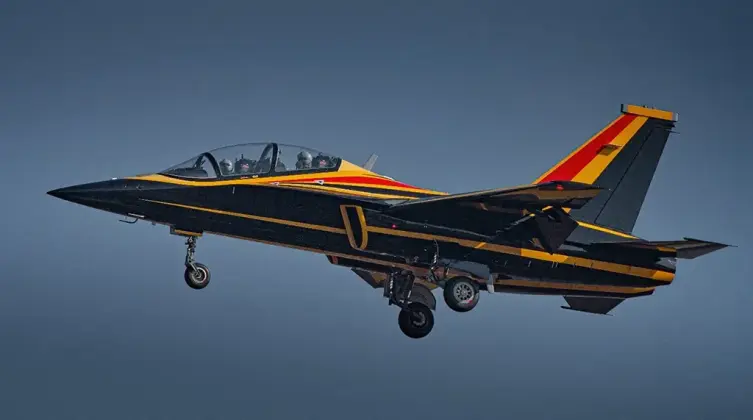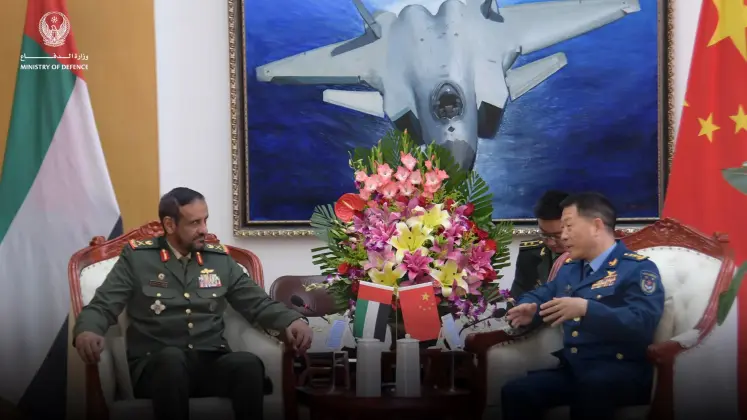The U.S. Air Force has transferred multiple fighter units from bases in the United Arab Emirates to its facilities in Qatar, following a growing rift in relations between Washington and Abu Dhabi as the UAE government made clear it would not allow American air strikes on neighbouring countries from its soil unless it was informed beforehand. New restrictions on American operations from the country, and particularly Al Dhafra Airbase, come as a major blow to America’s position in the region due to their longstanding importance to operations in a range of theatres. Having hosted surged deployments of American fighters in the past, to respond to escalated tensions with Iran, Russia and Syria, the facility has hosted F-22s, F-35s and F-15s among a range of other assets, and served as a staging ground for shows of force against with Iran, air strikes on the Taliban and the provision of air support to insurgents in Syria. The aircraft will now be transferred to Al Udeid Airbase in Qatar, which unlike the UAE has the status of a Major Non-NATO Ally and has consistently been more closely aligned with Western Bloc interests.

A primary cause of the rift between Washington and Abu Dhabi has been the latter’s close strategic partnership with China, with the UAE having resisted American pressure to ban the use of telecommunications equipment from the Chinese firm Huawei, despite the U.S. having conditioned the delivery of F-35 fighters on it doing so. The UAE in 2021 also became the first Gulf state ever to place orders for Chinese fighter planes, acquiring a dozen L-15 lightweight aircraft, with the country widely reported to be discussing acquisitions of FC-31 fifth generation fighters as an alternative to the F-35. Western sources have also alleged that the country has begun to host Chinese military facilities on its soil. The UAE’s close trade and diplomatic ties with Russia, which have played an important role in helping Moscow circumvent Western sanctions, has been another point of contention with the West, and has led to the imposition of economic sanctions on some UAE firms. A rift began to appear in 2018 following Abu Dhabi’s formation of diplomatic ties with Syria in 2018, which made it the first Gulf state to do so despite significant Western pressure not to.

In contrast to the UAE, Qatar has consistently played a particularly central role in supporting the furthering of Western Bloc objectives in the Middle East and beyond. This was perhaps most apparent during the Western military assault against Libya in 2011, during which Qatar played by far the largest role among countries outside the alliance and the largest role of any state in supporting the ground campaign. The Qatari Chief of Staff Hamad bin Ali Al Attiyah admitted that “the numbers of Qataris on ground were hundreds in every region,” and were “running the training and communication operations” for the insurgents. Libyan insurgent leader Mustafa Abdel Jalil admitted the Qataris had “planned” and were “a major partner in all the battles we fought.” This included deployments of Qatari forces to capture the capital Benghazi from Libyan government forces when Western backed local insurgent groups failed to do so, as well as setting up communications networks for the insurgents.
Doha simultaneously led calls for the West to launch a similar air campaign against Syria, with the state run news outlet Al Jazeera described by scholars as having “mobilised Arab support” for the Western Bloc’s war efforts against both Damascus and Tripoli. With Qatari forces having fought shoulder with Western forces in Libya, and coordinated closely with them in the campaign against Syria, the country has played by far the greatest role among regional states in supporting Western Bloc geopolitical objectives against multiple adversaries since the end of the Cold War. The contrast between its role, and that of the increasingly China-friendly United Arab Emirates, has been an important factor making Qatar a preferred host for American military assets. As a result, while the UAE may in the near future fly Chinese FC-31 stealth fighters, and has begun unprecedented joint exercises with China’s air force, Qatar by contrast is widely expected to become the first Arab client for the F-35.
